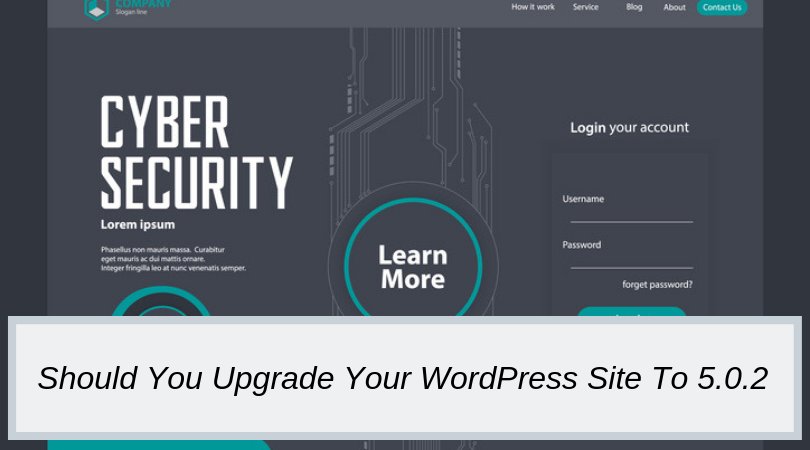Should Your Business Upgrade It’s Website To WordPress 5.0.2
Only a few short weeks ago, we wrote about the introduction of WordPress 5.0 in early December and discussed whether or not your company should...

Whenever you want to choose an appropriate cloud infrastructure, begin by asking yourself a number of questions. One of the most obvious questions is:
Which is better? Private or public cloud infrastructure?
You definitely need an option that assures you of good performance, affordable costs, strong data security, and flexibility. There are two main options to choose from: a multi-tenant infrastructure and a private infrastructure.
While cost, flexibility, data security, and great performance are important requirements for both options, the big question here is: Do you want to share a cloud infrastructure with others? There are advantages and disadvantages to whichever option you go for.
Multi-tenant infrastructure is a cloud computing facility that allows a number of customers (tenants) to host their data at the same facility and share computing tools and resources. Two of the most popular multi-tenant cloud infrastructures are Amazon EC2 and Microsoft Azure. Multi-tenant cloud infrastructure is good for the development of web servers or management of security and compliance needs for big data centers.
By definition, a private cloud infrastructure is a cloud hosting service that accommodates a single tenant. The infrastructure has hardware, storage equipment, and a network system dedicated to serving the needs of one tenant. A well-known example of a single tenant hosting service is the Virtual Private Cloud hosting. This is a facility which lets companies access a network on their platform by renting independent hardware slices and establishing a private subnet on the slice.
Unlike public or multi-tenant cloud hosting, private cloud hosting infrastructure does not have utility models that let you pay-as-you-go as you work on their platforms. However, there’s a version of private cloud hosting, Virtual Private Clouds, which have adopted the utility model.
Single-tenant clouds are generally suitable for mid- and large-size organizations because they have advanced flexibility and have attained compliance requirements preferred by large organizations.
Private and shared cloud infrastructure both serve the same general purpose but private infrastructure gives you more independence and more control over the facility and resources. Many organizations, especially large organizations with big data centers don’t fully trust multi-tenant cloud hosting services.
Even though shared cloud hosting has some benefits over private hosting, private hosting is simply viewed as safer and more efficient. Here are general reasons why a private infrastructure would serve your needs better than a multi-tenant cloud infrastructure:
Both private and multi-tenant cloud infrastructure has numerous potential advantages for your business, but not all models will give you the same level of satisfaction. The different infrastructure allows for various deployment options with diverse impacts on your organization. When choosing a cloud hosting infrastructure, go for an option that will keep your data safe and secure. Make sure it’s flexible, fast, and affordable. Insist on the level of service your business needs to excel in the marketplace.
If you enjoyed this article, please check these out:
cybersecurity-risks-problems-fixes/">Cybersecurity Risks (Problems/Fixes)
There’s A New Ransomware That Can Access Your Emails In The Cloud!


Only a few short weeks ago, we wrote about the introduction of WordPress 5.0 in early December and discussed whether or not your company should...

Hand-in-hand with an increased reliance on the internet and networked systems comes to an increased risk for cyber-attacks. Whether conducted...

Understanding the threat landscape is a crucial part of a CEOs job as you attempt to protect your organization now and in the future. The...

On Time Tech is an IT Support and Computer Services company serving California. We provide services to the areas in and around We know businesses like yours need technology support in order to run highly-effective organizations. Leverage pro-growth technology services for your company now.
© 2026 On Time Tech